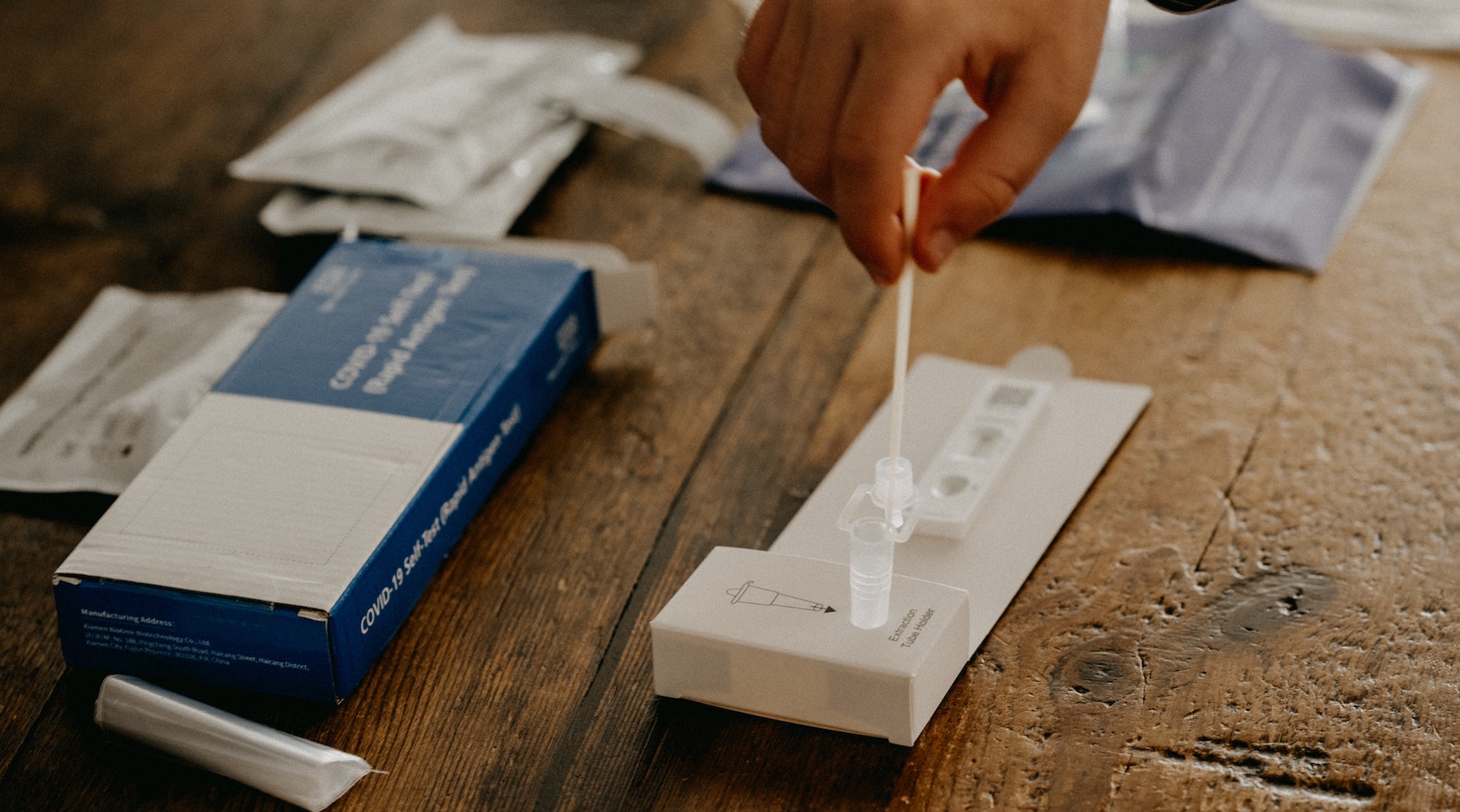Each week, OMRF Vice President of Research Dr. Rod McEver opens “Adam’s Journal” to answer a medical question from Adam Cohen, OMRF’s senior vice president & general counsel and interim president.
Adam’s Journal
At-home rapid Covid-19 tests are increasingly becoming available. How reliable are these tests, and how do they work?
Dr. McEver Prescribes
The U.S. Food and Drug Administration has given emergency use authorization for several over-the-counter rapid Covid-19 tests. Unlike earlier home test kits that consumers returned to a lab, some tests are now fully at-home, offering results in 15-30 minutes.
There are two kinds of these at-home tests. Antigen tests detect a protein in the virus’s shell, while molecular tests detect the virus’s genetic material. Both require a nasal swab, but the swab doesn’t have to be inserted as far into your nose as a clinical test.
Of the two, antigen tests are the most affordable at about $12 each. They look like pregnancy tests and use the same technology as many of the rapid tests available in healthcare settings.
Antigen tests are less accurate than the “gold standard” polymerase chain reaction (PCR) tests and work best for people displaying symptoms of Covid-19. Abbott and Quidel report their tests, BinaxNOW and QuickVue, to be more than 80% accurate at detecting Covid-19.
For a higher level of certainty, a home molecular test is also available. This test uses a technology similar to PCR and is more likely than an antigen test to detect asymptomatic infections.
Currently, only one molecular test is available for purchase by consumers. The $55 single-use test from Lucira uses a palm-sized battery-powered processing unit. In one study, it accurately detected Covid-19 infection 94% of the time.
In general, regular home testing isn’t necessary for a fully vaccinated person. If you plan to spend time with someone at high risk for Covid-19 or just want a convenient way to ensure your sniffles are no more than allergies or a common cold, an at-home test can provide some peace of mind. However, test interpretation should preferably be discussed with your physician.
–
Do you have a health query for Dr. McEver? Email contact@omrf.org and your question may be answered in a future column!



